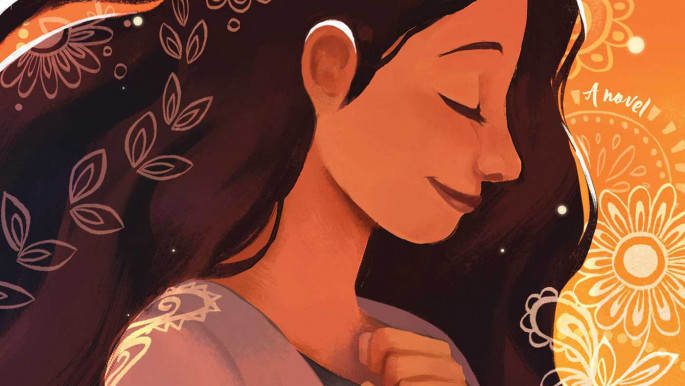Amina's Voice brings Muslim-American experience to global audience
When Hena Khan began writing Amina’s Voice four years ago, she knew the book’s themes could have a powerful impact on both young Muslim and non-Muslim readers alike.
But today, with Donald Trump in the White House, and animus towards Muslims seemingly growing worldwide, it’s become more important than ever.
“It’s an important message that it’s okay to be different and to be comfortable with being different,” said Khan, a Pakistani-American author who was born and raised in Maryland. She said she modelled parts of the story on her own life.
“When I started writing the book, it was several years ago, and at the time Islamophobia was alive and well… I feel that unfortunately, it’s even more timely now,” she told The New Arab.
Amina’s Voice is aimed at youth between ages 8 and 12. In the story, sixth-grader Amina is growing up in Milwaukee, Wisconsin, with her older brother, Mustafa, and her parents, who are originally from Pakistan.
She just started middle school, where the prospect of making new friends, and finding her way in different social circles, leaves her feeling confused and hurt.
Why is her best friend, Soojin, suddenly bringing a new friend around, especially one they have mutually disliked for years?
Up until now, Soojin, who is Korean, and Amina have shared similar experiences, from teachers being unable to properly pronounce their names, to being teased for bringing traditional food for lunch. Will she suddenly be left behind, Amina wonders?
She also struggles to find her voice – literally – and muster the courage to sing in front of others, no matter how many times her friends push her to take the microphone, or the support of her parents.
 |
|
| Book cover courtesy of Simon & Schuster |
An extended visit from a conservative uncle also raises new questions about whether music is haram, or forbidden, and if she should be singing at all.
But it’s when her family’s mosque, and the Islamic centre where she attends weekly Quran lessons, is vandalised, that Amina becomes even more confused. Racist slurs and the words, “Go home” are spray-painted inside.
“Why would anyone want to ruin our beautiful centre? What would they get out of that?” Amina wonders.
Khan said she hoped readers would be able to put themselves in Amina’s shoes, and imagine what it would feel like to have a place they loved so dearly destroyed.
“Here she is experiencing it from her perspective, and seeing something she loves so much being destroyed for reasons she just can’t understand – and that feeling of fear and loss and helplessness when you realise that somebody hates you and you don’t understand why,” Khan said.
But the book isn’t about Amina struggling to reconcile her background with growing up in the US: Amina likes who she is, and where she is from, and she is dealing with the same challenges every child experiences, like self-confidence, Khan explained.
“It’s not problems like, why am I brown? Or why am I Pakistani? Or why are my parents different? That’s not really the over-arching theme,” Khan said. “I wanted a family that was unapologetically Muslim and American and able to be both.”
And that’s an important message to provide young Muslim readers, who seldom have the chance to read about literary characters that reflect their own, personal experiences, Khan said.
“It’s so important for Muslim children to feel included and represented and to feel validated, and to know that stories about them are worth sharing and worth being told,” she said.
Indeed, Amina’s Voice is the first release in a new Simon & Schuster imprint, Salaam Reads, that seeks to introduce readers to Muslim children and families and their stories in a wide variety of books.
“There is an incredible range of cultural and religious traditions among Muslims in the United States and across the globe, illustrating that there is no one way to be Muslim,” said Salaam Reads’ executive editor Zareen Jaffery.
“Our aim with the Salaam Reads imprint is in part to provide fun and compelling books for Muslim children, but we also intend for these books to be entertaining and enriching for a larger non-Muslim audience.”
Khan, who has also authored It’s Ramadan, Curious George, and Golden Domes and Silver Lanterns, children’s books about Muslim holidays and traditions, said she also hoped non-Muslim readers of Amina’s Voice would relate to the story.
“I hope that non-Muslim children do see themselves in her and in her life, as well, and realise how much we all do have in common. Many of the ways her family functions are similar to what their families might look like, or their religious communities,” Khan said.
“I’m really hopeful that the book can serve as a tool for starting conversations and for really getting people thinking about things in a different way. So for that, I’m grateful that it’s coming out now.”
Amina’s Voice will be released on March 14, 2017.



 Follow the Middle East's top stories in English at The New Arab on Google News
Follow the Middle East's top stories in English at The New Arab on Google News


